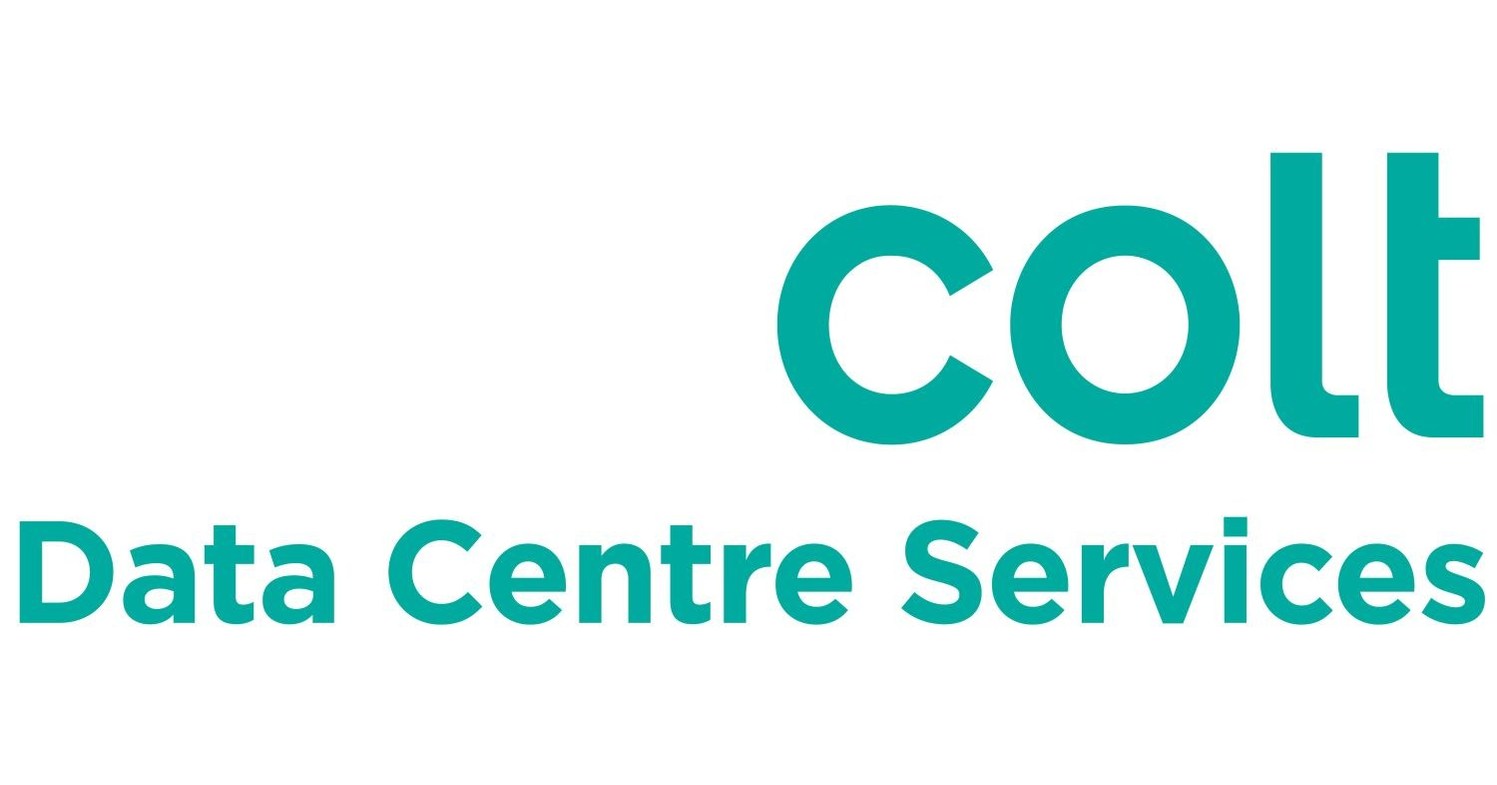Published
- 05:00 am

The Chartered Institute for Securities & Investment (CISI) is delighted to announce that 22 students have received the CISI 2021 Educational Trust Awards.
The CISI Educational Trust Awards annually celebrate achievement amongst students studying CISI accredited courses around the UK, at both undergraduate and postgraduate level. The winners received a combined total of £14,000.
Each of the winners, 13 undergraduates and 9 postgraduate students which included 15 male and 7 female achievers this year, were nominated by their university based on excellence in an item of work or examination.
In addition to their nomination, each winner was invited to submit an essay of 500 words for the opportunity to attend an interview with the CISI Educational Trust and a chance to achieve a further financial award based on interview performance, a general knowledge test and knowledge of the CISI. The essay title for 2021 was: ‘’Are Financial Centres dead? Discuss the impact of key current issues including COVID-19 on the future of business clusters that make up financial centres around the world?’’
Following an intensive interview process, CISI is delighted to congratulate Ndodini Nancy Molife from Glasgow Caledonian University as the top performing postgraduate who received an additional £1,000 and Ilona Wrzeszcz top performing undergraduate from University of Greenwich, who received an additional award of £1,000. Two runners-upElliot Bramham and Zak Warren both from University of East Anglia received additional awards of £500 each. The top performing students were invited to attend the CISI Annual Awards Ceremony.
On receipt of her award, top performing post graduate Ndodini Nancy Molife (left) from Glasgow Caledonian University said: “It is an incredible honour to be recognised as the postgraduate CISI Educational Trust Award 2021 winner. A rewarding and enriching part of the journey was writing an essay on the fascinating subject of Financial Centres. The highlight was definitely the interview with highly experienced finance professionals, where we discussed opportunities within, and challenges facing, the financial services profession. As an ambassador of the CISI, I look forward to studying further and becoming a chartered member, representing the CISI’s commitment to professionalism and integrity.”
Ilona Wrzeszcz (right) top performing undergraduate from University of Greenwich said: “I am honoured to have received the CISI Educational Trust Award 2021 and I am confident that the award will boost my chances of success within the financial sector. As a law student, I found writing essays on finance-related topics was different from what I was used to and therefore pushed me outside of my comfort zone and, I loved it! The highlight of the CISI Educational Trust Awards was the interview during which I was invited by the interviewers to use my legal background to discuss matters from a different angle. I look forward to acting as an ambassador for CISI and encourage other students, especially law students, to be confident in their ability to participate in the CISI Educational Trust Awards.”
Frank Moxon CF, Chartered FCSI(Hon) Chairman CISI Educational Trust, commented: “The calibre of students nominated this year was very high. Their achievements are awe-inspiring given the challenges faced during and in addition to lockdowns and the pandemic. I want to thank all students who took part and those who supported them, including academic staff, families and friends. Special congratulations go to Ndodini and Ilona, our overall winners this year, who, at interview, displayed not only outstanding specialist and general knowledge but also great interpersonal skills and well-rounded character.”
University | Student Name | Amount awarded |
Aston University | Mohammed Juall Ahmed | £500 |
Bangor University | Christian Wilkinson | £500 |
Birmingham City University | Jack Turton | £500 |
Birmingham City University | Jake Davies | £500 |
Coventry University | Ashley Christopher Carr | £500 |
De Montfort University | Shahab Iqbal Khan | £500 |
Glasgow Caledonian University | Ndodini Nancy Molife |
£1,500 |
ICMA Centre (University of Reading) | Thomas Traill | £500 |
Liverpool John Moores Uni - Liverpool Business School (LJMU) | Dinusha Nadeeshani De Mel Mahavidanelage | £500 |
Northumbria University | Benjamin Gibbon | £500 |
Ulster University | Anna Rebecca Donnelly | £500 |
University of Derby | Marcelo Herrera | £500 |
University of East Anglia | Elliot Bramham |
£1,000 |
University of East Anglia | Zak Warren |
£1,000 |
University of East London | Sara-Georgiana Florea | £500 |
University of Edinburgh | Stephanie Short | £500 |
University of Exeter | Milica Andrea Acimovic | £500 |
University of Greenwich | Ilona Wrzeszcz |
£1,500 |
University of Portsmouth | Owen Smith | £500 |
University of Sussex | Mr Christopher Southcott | £500 |
University of Sussex | Mandeep Singh Nota | £500 |
University of York | Harrison Lythgoe | £500 |
Related News
- 09:00 am

Synechron Inc., a leading digital transformation consulting firm focused exclusively on the financial services industry, today announced its new partnership with Unqork, the leading enterprise no-code platform.
Synechron is partnering with Unqork to accelerate enterprise-wide digital solutions for use with clients across the global financial services domain. In the past, Synechron has delivered multiple, award-winning solutions for a variety of clients. Our partnership with Unqork will allow us to quickly scale up enterprise-wide applications for life, property & casualty insurance providers, reinsurance, and general insurance firms, as well as device care & protection warranty enterprises. This new partnership will also help accelerate recordkeeping solutions for retirement plan servicers and enable Synechron to deliver enterprise-wide platforms and functionality beyond insurance companies.
Unqork invented the first enterprise-grade pure no-code platform, to help companies build mission-critical software faster, with higher quality and lower costs than traditional approaches – all without a single line of code. Unqork’s platform is designed for highly regulated industries like insurance and can be used to create custom solutions for some of the most common industry problems. The result is a much shorter lifecycle, from design iteration to go-live, with reduced development and maintenance costs, and a near-immediate return on investment.
Insurance is a fast-moving business and insurers have a huge responsibility for providing better results to their customers as well as to their own bottom lines. At the same time, the rapidly evolving insurance industry, along with quickly changing and digital modernization initiatives for insurance technologies, is driving demand for fresh, digital strategies to power business operations while increasing efficiencies. This includes facilitating faster, easier, and more secure ways for onboarding customers, processing claims, installing new applications for expanded capabilities, and leveraging digital tools. Next-generation digital tools that facilitate customer-driven demands will play a vital role in customer retention and enabling cross-selling and upselling opportunities for insurance companies.
Going forward, the partnership with Unqork allows Synechron to make its digital and technology solution offerings available to other financial services organizations, such as banks and other capital markets’ participants in the US and Europe. This includes financial enterprises who need visual templates, easy-to-use drag-and-drop tools, auto-created API structures and other components, without the need for code writing expertise.
In addition, Synechron already has several individuals skilled in the Unqork platform and plans to build an Unqork Center of Excellence (CoE) with the goal of increasing the talent pool of Unqork-trained experts.
Mihir Shah, Managing Director, Head of Europe, Middle East and APAC at Synechron, said: “The rapid digitization in the insurance domain driven by customers’ growing needs for digital services and products is driving a new wave of agility, flexibility and a path to efficiency. In order to keep pace with this industry trend, we are seeing Insurance firms accelerating their in-house development augmented with their willingness to adopt Insurtech platforms. A platform like Unqork’s can help meet insurance companies’ real-world operating needs.” He added: “We are glad to have Unqork as a new partner”.
Christian Barrera, Vice President of Alliances and Ecosystem, Unqork noted: “Unqork’s enterprise no-code platform helps build quality software three times faster than traditional coding. Slashing the development timeline for most insurance companies’ digital transformation initiatives and driving better digitally-led solutions for retirement services saves time, costs and headaches.” He added, “We are thrilled to help Synechron help their insurance company clients modernize mission-critical processes that will benefit their businesses and their end-user customers as well.”
Related News
- 05:00 am

In order to meet the needs of digital society for convenient and efficient gold trading, ACU Digital Limited recently launched ACUG token, combining traditional gold trading with blockchain. ACUG has an asset investment method which is anchored by physical gold and realized by blockchain technology. According to the recently released "Research Report on Current Situation Analysis and Investment Strategy of China's Gold Trial Production from 2020 to 2026", China's gold investment market has obviously recovered. This trend may help ACUG token to quickly occupy the market and become the connecting hub of the gold market.
Compared with traditional gold and cryptocurrency investment, ACUG has the following advantages:
1. 1ACUG and 1 ounce of gold are exchanged 1:1. Compared with cryptocurrencies, there are no risks such as spamming and watered-down by issuers. Gold is a universal asset, and the international gold investment market is transparent and fair. Without market maker, it has a global market with huge transaction volume. Its market is standardized, self-disciplined, laws and regulations are sound, and all investors are equal.
2. Gold is a two-way trade. Therefore, investors can not only go long in the unilaterally rising market, but also go short in the unilaterally falling market. Even, as long as the judgment is accurate, taking different operation methods in different markets can make profits. ACUG, which has realized digital gold trading, can make full use of the feature that gold can be traded globally without stopping the market. Investors seize every value band at the lowest cost.
3. Compared with traditional gold trading, ACUG has a shorter settlement time, which provides a good opportunity for investors to conduct cumulative trading on the same day, thus improving the utilization rate of funds and increasing the possibility of return on investment. It avoids the inconvenience of lack of liquidity caused by too long transaction freezing time in the process of asset allocation. In terms of cross-border transactions, it also circumvents the global asset allocation obstacles such as foreign exchange restrictions.
ACUG is highlighting its own value in the turbulent global environment with a more stable, reliable and convenient gold token.
The first batch of 100,000 ACUG launched on March 22nd has been snapped up within one hour. It can be seen that investors are optimistic about ACUG
Related News
- 06:00 am

Shield is proud to announce it has been named on The Financial Technologist ‘Most Influential Financial Technology Companies 2021’ list, the third time in a row that it has been recognised. This year’s winners were announced on Monday 29th March and selected by a judging panel including representatives from Harrington Starr, EY, Lloyds Banking Group, Praetura Ventures, Baringa Partners, The Realization Group, The Disruption House, Cruxy & Company, and Archon Advisors
Shield’s CEO and Co-Founder Shiran Weitzman commented upon the announcement, “We are delighted and honoured to be recognised again for the third time in a row in this year’s awards. Since launching in 2018, Shield has had a central aim of re-writing the rulebook and transforming the RegTech sphere by delivering the ultimate automated and intelligent communications compliance platform, protecting financial firms and their customers by ensuring regulations are fully adhered to.”
Since being named in the 2020 list, Shield has further evolved to meet the latest challenges posed by the global pandemic and its fallout. This includes the launch of an enhanced solution that combines its Insider Trading and Information Handling models - INSIDERS, which answers market demands for greater surveillance to accompany increased remote working in the new normal. Additionally, the Shield platform has added full integration with popular audiovisual collaboration platform Zoom, extending its powerful capture, surveillance and investigation tools across video, audio, chat and shared data files between parties communicating on Zoom.
Shield has also joined the IBM Cloud for Financial Services ecosystem as an Independent Software Vendor (ISV) partner, onboarding its communication compliance and surveillance offerings to the platform. Additionally, Shield agreed a ground-breaking world-wide collaboration agreement with FIS, a global leader in financial services technology.
Shield and its platform have also been recognised by numerous awards, including a recent win for 'Most innovative unstructured data management project’ category in the A-Team Innovation Awards 2021. Shiran added, “Despite 2020 being a markedly unusual year, we are now looking towards our next stage of growth and continuing to deliver a Workplace Intelligence solution that meets the modern workplace’s challenges in the new normal. We are very excited to be providing the ideal solution to help firms meet the ongoing challenges in a rapidly changing world.”
For more details on Shield and its solutions, and to schedule a demo please contact us via email: info@shieldfc.com
About Shield
With a unique cross regulation compliance platform for electronic communication trade and market data that specializes in the financial compliance domain, Shield helps financial institutions capture, correlate and analyze data to meet regulatory requirements, without impacting operational performance.
Shield does this by developing innovative, elegant and cost-effective solutions that address the real-life complexities of managing the impact of regulatory change. Shields platform provides a 360 view on eComms, trade and market data utilizing AI, NLP and Visualization capabilities to make compliance more efficient and ROI driven.
Shield takes a novel approach by utilizing a single, automated future-proof platform to seamlessly capture, archive and investigate interactions across all eComms channels. This is essential in meeting all the Record-Keeping requirements to adhere to MiFID II, AML, GDPR, MAR, Dodd Frank and FINRA compliance requirements and data governance standards, along with e-privacy legislation. The open platform allows firms to customize the system according to their needs.
Shield's solution addresses the challenge of the ever-increasing number of eComms platforms and data sources being used during the trade lifecycle, along with the need for powerful analysis and investigation capabilities, covering the scope of Record-Keeping (including GDPR enablement), compliance archiving, compliance investigation and Best Execution reconstruction to support operational performance. We're moving compliance rapidly forward.
For more information please visit: www.shieldfc.com
Related News
- 03:00 am

Related News
- 07:00 am

Colt Technology Services, a leading provider of global high bandwidth connectivity solutions, and IBM [NYSE:IBM] today announced an extension of their existing partnership to include IBM Cloud Satellite on the Colt edge platform.
By combining the deployment flexibility of IBM Cloud Satellite with Colt’s edge platform, Colt and IBM’s customers can drive new innovation by gaining the speed, security and performance needed to harness IBM Cloud at the edge. IBM Cloud Satellite enables companies to securely extend IBM Cloud to wherever their workloads are running. Customers will be able to tap into a consistent and secure set of cloud services, such as AI, security and automation, regardless of where their workloads reside – on a public or private cloud, on premises or at the edge.
Colt will collaborate with IBM and build on this foundation to develop low latency dependant customer use cases that leverage AI, 5G and IoT. These use cases will be able to be deployed across Colt’s IQ Network, which is comprises more than 29,000 on net buildings and 900 data centres, as well as its customer and network edge locations. The deepened partnership between Colt and IBM, coupled with Colt’s on-demand networking and secure SD WAN capabilities will also further progress customers on-going digital transformations.
Colt has recently committed to further collaboration with Cloud Service Providers (CSPs) as part of its three-year strategy, which will see greater alignment between how Colt rolls out its IQ Network and where enterprises are requiring greater cloud connectivity.
To further bolster the partnership, Colt will utilise an IBM network services delivery model and IBM Global Business Services, a leading services integrator in the telco industry, to enable continuous integration, delivery and to accelerate the evolution of their Virtual Networking product portfolio. This will ultimately enable seamless delivery of services that will support and de-risk the migration of mission critical applications to the cloud for end customers, another area Colt and IBM are committed to partnering in.
Keri Gilder, Chief Executive Officer at Colt said: “I look forward to elevating our relationship and bringing the best of Colt to IBM and the best of IBM to Colt. This is an opportunity to bring our market-leading connectivity together with IBM’s technology and consultancy to provide our end-users with a superior offering. The combination of Colt’s DCA On Demand offering with IBM’s capabilities means we can jointly transform business critical enterprise applications quicker than ever before, whilst also enabling the next frontier of enterprise IT with 5G and Edge solutions.”
Colt’s cloud services portfolio is underpinned by the Colt IQ Network, which delivers improved performance, enhanced control, flexibility, and scalability to customers, combining industry leading customer service with award-winning innovation. Colt’s fully-owned and operated dense fibre network allows enterprises to benefit from an end-to-end, seamless connection to the cloud.
Steve Canepa, Global GM & Managing Director, IBM Communications Sector, said: “We’re focused on helping Colt transform its enterprise offerings to meet the rapidly evolving needs of today’s customers. By expanding our partnership, we’re helping customers harness open hybrid cloud technologies to gain better deployment flexibility, enhanced security, and access to advanced services that can fuel their innovation, all the way to the edge. Colt’s IQ Network and On Demand portfolio combined with IBM Cloud Satellite, as well as our market-leading capabilities and deep industry expertise, will accelerate digital transformation and business outcomes for Colt and their customers.”
Related News
- 06:00 am

Leading pan-African fintech company, Accelerex Ghana (www.GlobalAccelerex.com.gh), has hit a new milestone, after being granted an enhanced Payment Service Provider (PSP) licence from the Bank of Ghana (BoG), under the Payment Systems and Services Act, 2019 (Act 987). This makes Accelerex Ghana the only fintech organization currently within the enhanced PSP category that provides physical e-payment devices, merchant acquiring, and agency banking solutions in Ghana.
The move followed on the heels of the ISO 27001:2013 and PCI-DSS certifications recently obtained by the company and will open the Ghanaian market to more electronic payment and transaction possibilities across different platforms and channels.
Speaking on the achievements, Chief Executive Officer and Managing Director of Accelerex Ghana, Sebastian Yalley, noted that: “through our continuous product innovation and impeccable attention to customer needs, the company has gradually emerged as the financial technology company of choice for Ghanaian businesses.”
He further stated that: “at Accelerex, standardization and compliance remain the bedrock of our operations across all subsidiaries in Africa. We believe that having this licence from the Bank of Ghana is a demonstration of our commitment to the Ghanaian market, and serves as the foundation for rolling out simple, secure, and convenient e-payment and digital transaction solutions for all customer segments. We intend to use this as a leverage to deepen our existing relationships with our bank clients. In that same spirit of collaboration, we are open to working with other fintech companies to deliver superior value to customers.”
Buoyed by this major milestone which permits the company to offer electronic payment platforms and applications, agency banking, merchant payment collections, payment terminal management and terminal aggregator management systems, Accelerex Ghana is eyeing the retail segment with its new revolutionary products - RexPay and RexRetail, set to launch in Q2 of 2021. These products will help the company deepen its footprints in Ghana and cement its position as a leader in the e-payment space.
RexPay (https://bit.ly/31vEj0X) is an online payment gateway that helps social media sellers and corporate organizations receive payments in a fast, convenient and secure manner, even without owning a website. Customers enjoy multiple payment options and can make payments seamlessly wherever they are. Sellers can sign up easily to the RexPay platform in less than five minutes, then begin to receive payments instantly.
RexRetail, an all-in-one solution for small and medium-sized retail shops, helps retailers automate their everyday operations. It is a superb tool for inventory management, customer relationship management and seamless accounting. More importantly, RexRetail supports business owners with a reporting and analytics tool that helps them keep track of the performance of their business.
A member of the Accelerex Holdings Group, with footprints in Nigeria and Kenya, Accelerex Ghana commenced operations in the country in 2019 as a financial technology company offering offline and online payment services to its target markets. Its parent company, Accelerex Holdings, recently secured a US$20million investment from African Capital Alliance to drive new product development and expand to South Africa, Cote d’Ivoire and Tanzania.
Accelerex Ghana has a strong bias for innovation, world-class technology and excellent customer service. It intends to extend availability of its products and services to different categories of businesses in Ghana with the aim of spreading accessibility of financial technology and digital payments. Visit www.GlobalAccelerex.com.ghfor more information.
Related News
- 03:00 am

Abu Dhabi and London, March 30, 2021 - Buna, the cross-border and multi-currency payment system owned by the Arab Monetary Fund, has announced that it has plans to launch instant payments, in addition to trade finance solutions, securities settlement and ATM/ POS processing service, at a later stage. This growing list of innovative solutions will complement Buna’s current offering of multi-currency cross-border interbank payments, commercial payments, and consumer remittances.
Mehdi Manaa, Chief Executive Officer of Buna, made the announcement recently during his exclusive March session at Sibos, the leading annual financial services event organised by SWIFT. During the session: “Transforming a regional payment landscape,” Manaa shared his thoughts on the positive impact of the cross-border payments system on participating banks in the Arab region and beyond and presented the added value that Buna is bringing to the payments industry by improving the speed, cost-effectiveness and transparency of cross- border payments flows in regional and key international currencies.
Buna has already onboarded four currencies since its launch 12 months ago by the Arab Monetary Fund (AMF). These are the Emirati Dirham, the Egyptian Pound, the Saudi Riyal and the US Dollar. The system first live payment was executed in UAE Dirhams last December. Manaa revealed imminent plans to onboard the Euro and the Jordanian Dinar. So far, approximately 90 banks from the Arab region are being onboarded out of more than 130 that are in various stages of preparation.
Buna was launched and created as a regional payments market infrastructure that aims to deliver advanced, secured, and highly efficient payment solutions, and can cater to the growing needs of financial institutions and their diversified client base in the region and beyond, without any geographical or technical barriers. In doing this, Buna is working closely with SWIFT, which can provide not only the reach that Buna needs, but also the highest security and availability. As Buna grows and continues to evolve its services, it will continue to work with SWIFT to enhance the value proposition of Buna’s payments system by enabling instant payments capabilities. A key aim of the initiative, strongly supported by the region’s central banks, is to advance the growth and integration of Arab economies. To this end, Buna is transforming the payment scene, by serving as a single-entry point to the region’s financial systems for global financial institutions, as well as a multi-currency and multi-instrument system for local ones.
“We can’t think about a well-functioning economy without the support of appropriate payment solutions,” Manaa explained at his SIBOS session. “It’s a virtuous circle. Buna is supporting the economic growth of the region, and the economic growth of the region will support Buna.” Manaa said Buna strongly advocates public-private sector collaboration, supports the ISO 15022 and 20022 message standards, and enjoys interoperability with existing systems, currencies, and instruments.
“This is a transformation, for the benefit of the economies of the region, empowering them to increase integration. Business models that would benefit from integration will see a lot of value in the system,” said Manaa. He highlighted the advantages of Buna which extend to banks outside the region."
“Offering a single access point to a broad region through a single market infrastructure, with efficiency, speed and low costs, is a huge change. For any trading partner, it makes cross-border payments and access to the region as simple as for a single country,” he concluded.
Related News
- 08:00 am

Data-stealing ransomware attacks, information harvesting malware, and supply chain attacks are among the critical threats to organizations highlighted in an attack landscape update published today by cyber security provider F-Secure.
One of the most notable trends highlighted in the update is the evolution of ransomware – attacks that extort organizations by preventing them from accessing their data. 2020 saw an explosion of ransomware that also steals data, giving the attackers more leverage over their victims. If organizations first refuse to pay a ransom to decrypt their data, attackers threaten to leak the stolen information, increasing pressure on victims to pay.
This evolution, referred to as Ransomware 2.0 in the report, was a significant development in 2020. Only one ransomware group was observed using this type of extortion in 2019. By the end of 2020, 15 different ransomware families had adopted this approach. Furthermore, nearly 40% of ransomware families discovered in 2020, as well as several older families, were known to also steal data from victims by the end of last year.
“Organizations with reliable backups and effective restoration procedures are in a strong position to recover from a ransomware attack without having to pay. However, managing a potential data leak is a dramatically different challenge, especially for organizations that possess confidential information,” explained Calvin Gan, a Senior Manager with F-Secure’s Tactical Defense Unit. “Ransomware actors, current and future, will likely feel emboldened to try new things and jump on vulnerabilities faster, which we’re already seeing with the recent MS Exchange vulnerabilities.”
Based on developments in the latter half of 2020, the report highlights several other significant cyber security trends, including:
- Attackers’ use of Excel formulas – a default feature that cannot be blocked – to obfuscate malicious code tripled in the second half of 2020.
- Outlook was the most popular brand spoofed in phishing emails, followed by Facebook Inc. and Office365.
- Nearly three-quarters of domains used to host phishing pages were web hosting services.
- Email accounted for over half of all malware infection attempts in 2020, making it the most common method of spreading malware in cyber attacks.
- Malware that automatically collects data and information from victims (infostealers) continues to be a threat; the two most prevalent malware families in the latter half of 2020 were both infostealers (Lokibot and Formbook).
- 61% of vulnerabilities found in corporate networks were disclosed on or before 2016, making them at least 5 years old.
Additionally, in a retrospective look at the notable supply chain attacks from the last 10 years, the report highlights that over half of them targeted either utility or application software and expresses hope that last year’s SolarWinds hack draws greater attention to the impact these attacks can have.
“In security, we place a lot of emphasis on organizations protecting themselves by having strong security perimeters, detection mechanisms to quickly identify breaches, and response plans and capabilities to contain intrusions. However, entities across industries and borders also need to work together to tackle security challenges further up the supply chain. Advanced persistent threat groups are clearly ready and willing to compromise hundreds of organizations through this approach, and we should work together to counter them,” said Gan.
The full report, Attack landscape update: Ransomware 2.0, automated recon, supply chain attacks, and other trending threats, is now available at
https://blog.f-secure.com/attack-landscape-update-h1-2021/
.
Related News
- 08:00 am

New research has revealed that the majority of financial services businesses are still failing to take effective action to improve their diversity and inclusion, despite growing awareness of diversity issues across the sector.
The Diversity in Tech report, by global emerging talent and reskill provider, mthree, found that, shockingly, more than half of financial services businesses (52%) do not currently have diversity targets in place.
Furthermore, almost 1 in 10 finance companies reported having no diversity and inclusion strategy in place at all.
Despite the remaining financial services businesses actively trying to ensure all employees feel comfortable and welcome, a quarter (24%) have received complaints from current or former employees in this regard.
Becs Roycroft, senior director atmthree, commented: “With so much public discussion around diversity and inclusion, it might be easy to assume that this increased awareness across the financial services sector is being translated into action. Unfortunately, this just isn’t true in many cases."
“Diversity in business is not only proven to be good for businesses themselves, with a recent report by McKinsey showing that ethnically and gender diverse teams are typically more profitable, but also for society. With this in mind, it’s important that finance organisations look at how they can both attract and retain talent from all backgrounds and walks of life."
“Diversity targets and an effective inclusion strategy are both crucial to this, so it’s essential that businesses in the financial services sector ensure that they have both of these initiatives built into their plans for the coming year, rather than failing to acknowledge the disparity or expecting it to correct itself .”
Tech diversity has proved especially troubling for businesses across all sectors, with Tech Nation reporting that only 15% of the UK’s tech workforce is from ethnic minority backgrounds, and that gender diversity currently sits at around 19%, compared with 49% for all other jobs.
Perhaps unsurprisingly then, mthree’s research showed that 68% of financial services businesses are aware of a continuing lack of diversity on their tech teams, and over 80% admit that they struggle to recruit tech talent from a range of backgrounds at every seniority level.
Reassuringly, of those, 44% are working to address the issue, but 24% said that they do not know how to change things. More worryingly, 9% said that they have never even considered whether they have a tech diversity problem.
Becs continued: “It’s been acknowledged for a long time now that diverse tech talent is in short supply. While it’s great to see that many financial services businesses are looking for ways to make improvements, it’s concerning that a significant proportion don’t know where to start.
“We would strongly recommend that those businesses urgently seek expert help, either by recruiting an experienced in-house diversity and inclusion officer, a role that is becoming increasingly prevalent, or by working with talent providers that have a keen focus on diversity and clear strategies to achieve it in place.”









